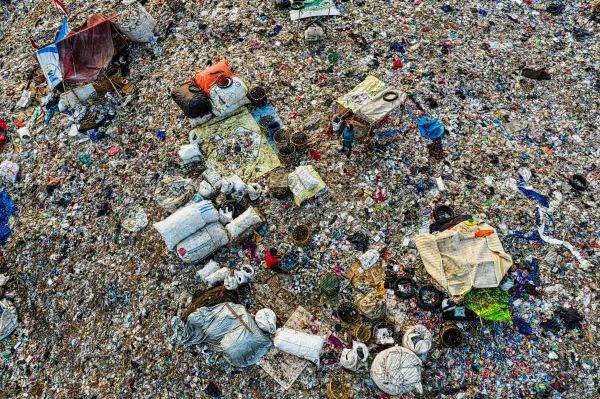The European Parliament has finally adopted a regulation that strengthens measures to combat microplastic pollution, targeting in particular industrial plastic granules (IPGs) - small microbeads used in the manufacture of all plastic objects. The text, resulting from a compromise between MEPs, the European Commission and the member states, extends the responsibility for losses of IPGs to carriers for the first time, not just producers. Its adoption took place without amendments or motions of rejection, after prior validation in the committee, reports AFP. Plastic granules are produced by the petrochemical industry in quantities of millions of tons annually and transported to manufacturers of plastic products. However, according to the European Commission, between 52,000 and 180,000 tonnes of plastic granules were lost in the European Union in 2019 alone, contaminating soil and marine ecosystems. Once in the sea, these microbeads - poetically nicknamed "mermaid tears” - can cause real "white tides” that suffocate beaches and are extremely difficult to clean up.
• Maritime transport, brought under the law for the first time
One of the most important advances of the new regulation is the inclusion of maritime transport within the scope of legal responsibilities. Until now, shipowners were exempted from the obligations regarding the prevention and reporting of microplastic losses. From now on, they will have to: pack the granules in secure containers, clearly labelled as products containing microplastics; immediately alert the competent authorities in the event of an accidental loss; transmit within a maximum of 30 days an estimate of the quantity of microplastics spilled and the impact on the environment. "With this regulation, shipowners can no longer say: it wasn't my fault. They are given a clear responsibility - they are the first to warn the authorities,” said the law's rapporteur, socialist MEP Cesar Luena, quoted by AFP.
• Clear deadlines for implementation
All companies - European or international - that transport more than 5 tonnes of microplastics annually in the European Union will have to comply with the new rules: within two years for land transport; within three years for maritime transport.
Producers, transporters and processors of plastic granules will also be required to: draw up risk assessment plans, implement measures to prevent and limit leaks, and launch rapid clean-up operations in the event of an incident. Large companies - those handling more than 1,500 tonnes annually - will have five years to obtain a certification of compliance from an independent body.
• A European law with global impact
With this regulation, the European Union is taking a major step towards reducing invisible pollution, demonstrating that the fight against microplastics cannot be limited to banning polluting cosmetics or textiles, but must include the entire production and transport chain. Environmental policy experts believe that the text will serve as an international model for other regions of the world, in the context of which the UN is negotiating a global treaty on plastics, aimed at drastically reducing marine litter by 2040.
















































